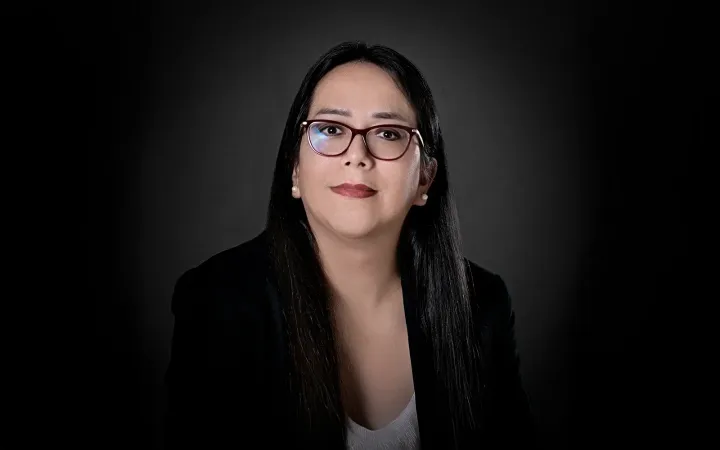Por Thelma Elena Pérez Álvarez

La reforma al Poder Judicial genera diversas reacciones, como protestas en varias ciudades del país encabezadas por estudiantes de derecho en universidades públicas y privadas, trabajadores del Poder Judicial y opositores al oficialismo. La narrativa presidencial sobre las movilizaciones estuvo centrada en la estrategia de polarización, argumentando la defensa de privilegios, la manipulación y el desclasamiento que universitarios inconformes experimentan, sin embargo, la realidad supera la narrativa.
Por ejemplo, Fito y Mateo participaron en la manifestación del 8 de septiembre en CDMX, cursan el séptimo semestre de la Licenciatura en Derecho en la Universidad Intercontinental y desarrollan actividades de divulgación de la ciencia jurídica. Fito, a sus 23 años, cuenta con tres publicaciones, como un diccionario jurídico publicado por la Comisión de Derechos Humanos del Estado de Puebla y representó a su universidad en el Diálogo de Alto Mando sobre el Proceso Penal Acusatorio de la Secretaría de Relaciones Exteriores ante la Unión Europea.
Mateo, de 21 años, está por publicar su primer artículo. Participó en un foro sobre cultura de la cancelación y realiza el servicio social en la Fiscalía General de la República, donde le ofrecieron trabajo. Ambos, impulsan la creación de una revista jurídica indexada y participan en el podcast Del Salón a la Sala enfocado en derechos humanos.
Protestaron, motivados por la unión y organización con sus pares, coinciden en que las juventudes deben interesarse en los problemas del país. Creen en los contrapesos y en la defensa de los derechos laborales, saben que su generación enfrenta una elevada precariedad laboral y que el Poder Judicial necesita con urgencia una reforma.
Fito, considera que la reforma podría tener de positivo el principio de equidad de género, que hombres y mujeres tengan las mismas oportunidades, sin embargo, señala: “Espero que no sean solo buenas intenciones, hay que comprobarlo”.
Mateo, encontraba positivos principios éticos expresados en la iniciativa: “Me parece correcto que hablen de nepotismo y corrupción, que sí hay, pero al revisar la minuta detectas la incongruencia entre el planteamiento original y la redacción final, por ejemplo, menciona la erradicación de la corrupción y la corrupción no se erradica, se previene, se controla, se castiga, porque el sistema no garantiza que un servidor público nunca se va a corromper. El nepotismo sí podría erradicarse, pues saben perfectamente quiénes son servidores públicos”.
Les preocupa la desaparición de la carrera judicial. Fito: “El Poder Judicial tiene la obligación de profesionalizar a quienes toman decisiones, porque la ley está por encima de las subjetividades y la interpretación a la ley implica estudios exhaustivos, puntuales, que requieren una importante preparación”.
Mateo: “Dentro de la carrera judicial hay corrupción que se justifica en la meritocracia. No creo en la meritocracia, porque no todas las personas tienen las mismas condiciones para acceder a cargos tanto por preparación como por dificultad, porque las personas que participan son muchas. La carrera judicial tiene fallas, sí, pero la reforma no implica mejorarlas, sino quitarla de raíz y no es la manera”.
Encuentran inquietante la elección popular de juzgadores y juzgadoras. Mateo: “El Poder Ejecutivo tendría jueces, magistrados o ministros a modo que pueden favorecer intereses políticos, económicos o personales y podrían ser personas sin la profesionalización que requiere afrontar el influyentismo de grupos con distintos intereses”.
Fito: “Me inquieta que los perfiles no sean los adecuados para garantizar que no regresen violaciones a derechos humanos que habíamos olvidado. Merecemos tener a servidores públicos preparados que dicten nuestro estatus y futuro jurídico”.
Para ambos universitarios la reforma en sí misma implica regresiones a derechos humanos, como la antes mencionada desaparición de la carrera judicial, la incorporación de jueces sin rostro (cuestionada por la Corte Interamericana de Derechos Humanos) y la división del actual Consejo de la Judicatura Federal en el Órgano de Administración Judicial y en el Tribunal de Disciplina Judicial.
Fito: “La figura del juez sin rostro atenta contra el derecho de toda persona a conocer al juzgador, porque si actúa mal puedes denunciarlo y pedir que lo remuevan. El planteamiento del Tribunal irrumpe la independencia judicial, pues plantea la revisión de sentencias dictadas por un juez especializado y quien fiscalice deberá garantizar especialización e independencia”.
Mateo: “El juez sin rostro es una contradicción, ¿vamos a conocer su identidad para elegirlo, pero no cuando dicte una sentencia? Su identidad se vulnera desde la elección. El caso del Tribunal podría ser positivo, pues actualmente quien preside la Suprema Corte preside también el Consejo de la Judicatura, ser juez y parte no está bien, pero hay que ver cómo se implementa”.
Sobre la narrativa presidencial hacia las manifestaciones. Fito expresa: “Esta lucha no es por privilegios. Protesté como un estudiante con la predicción de no tener casa propia y el 8% de probabilidad de vivir la vida que mis papás tuvieron. Marchamos estudiantes y trabajadores que luchamos contra una clase política privilegiada que redactó y decidió la reforma”.
Mateo: “¿Qué privilegios? El Estado de derecho y la separación de poderes son derechos. Vivir en una República representativa, democrática, laica y federal es nuestro derecho. No estamos defendiendo privilegios, sino derechos constitucionales y convencionales”.
*Docente en comunicación digital, publicidad y marketing en universidades de España y México. Trabaja activamente para que el Estado mexicano garantice el derecho humano a la alfabetización mediática e informacional.
Las opiniones expresadas son responsabilidad de sus autoras y son absolutamente independientes a la postura y línea editorial de Opinión 51.






Comments ()